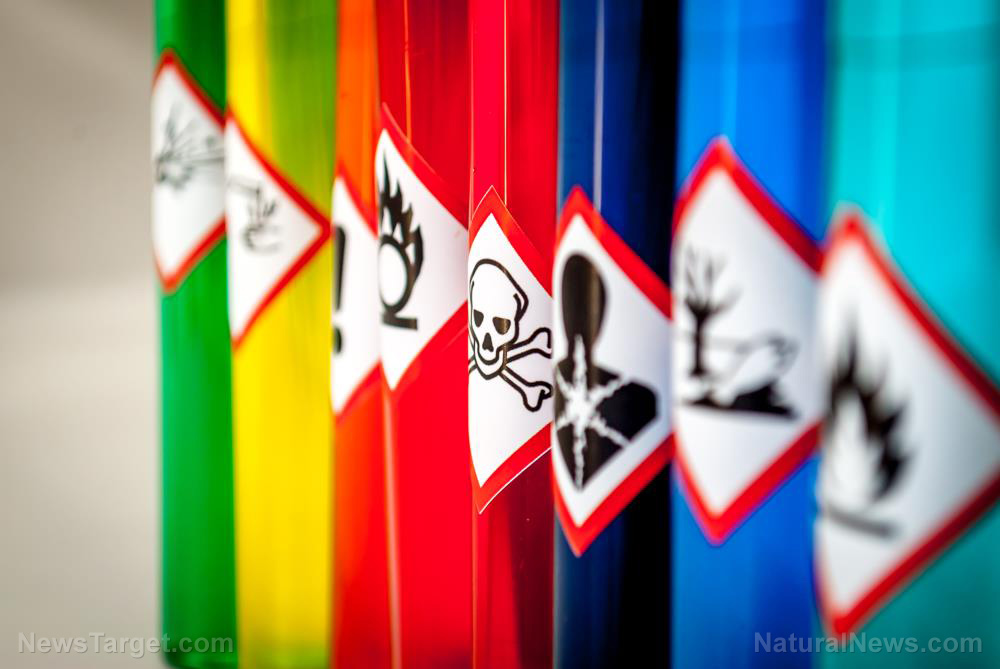 Parler
Parler Gab
Gab
- Men with higher levels of testosterone produce a body odor that is consistently rated by others as smelling more "dominant."
- This effect is specific to perceptions of dominance, which relies on force and intimidation, and does not extend to "prestige," a form of status earned through respect and knowledge.
- Both men and women are equally capable of detecting these subtle, hormone-linked scent cues.
- The ability to quickly assess social status through scent likely provided an evolutionary advantage, helping our ancestors navigate complex social hierarchies.
- The study opens new questions about the accuracy of these scent-based judgments and how they influence our daily interactions, from job interviews to romantic encounters.
The scent of a leader
The study, published in the journal Evolution and Human Behavior, employed a deceptively simple method to uncover a complex truth. Researchers collected worn T-shirts from 74 male volunteers, along with saliva samples to measure their testosterone levels. Then, they handed these intimate garments to 797 scent raters, asking them to sniff the shirts and make judgments about the unseen men who had worn them. The results were striking. There was a clear, consistent link: the higher a man’s testosterone, the more dominant he was perceived to be based on his odor alone. This connection held firm even when scientists accounted for how strong or pleasant the smell was, effectively isolating the hormonal signal from the general noise of body odor. This discovery fits into a broader tapestry of scientific understanding about our sense of smell. For decades, it was largely dismissed as a minor, almost vestigial sense in humans, especially when compared to the olfactory prowess of dogs or rodents. But a growing body of evidence, including work from scientists at Rockefeller University and Duke University, confirms that our genetic makeup plays a profound role in how we perceive scents. Our noses are not simple instruments; they are highly personalized filters, tuned by our DNA to interpret the chemical world in unique ways. This genetic lens helps explain why one person’s powerful, dominant scent might be another’s neutral whiff. Furthermore, our sensitivity is not static. As Dr. Michael Stoddart from the University of Tasmania has pointed out, women can be a thousand times more sensitive to certain musk-like compounds, similar to testosterone, just before ovulation. This suggests that our ability to "smell status" might ebb and flow with our biological rhythms, turning the volume up or down on this silent conversation depending on the day.The ancient roots of a modern sense
Why would humans evolve such a nuanced ability to sniff out dominance? The answer lies deep in our evolutionary past. Chemical communication is the oldest language on Earth, a system pre-dating speech by billions of years. From insects to reptiles to mammals, countless species use scent to advertise their competitive ability and social rank. A dominant male rodent marks his territory with a pungent declaration of ownership, and other males wisely steer clear, avoiding a fight they would likely lose. Ring-tailed lemurs engage in "stink fights," wafting their scent at rivals to assert dominance. Humans, it seems, are no exception to this ancient rule. We may have traded overt scent-marking for subtle deodorant marketing, but our biological hardware remains. Dr. Stoddart’s observations about our apocrine glands—found in areas like the underarms and genitals—are crucial here. These glands don’t produce simple sweat for cooling; they secrete a complex cocktail of oils and proteins that bacteria feast upon, creating our unique personal fragrance. This is the very essence that carries the chemical signatures of our hormones, including testosterone. The hormone influences the function of these glands, the production of skin oils, and even body hair growth, all of which can alter the final scent bouquet we present to the world. We are, in a very real sense, walking chemical billboards, and one of the boldest headlines we broadcast is written in testosterone.Five things that quietly sabotage your testosterone
While the study focused on how we perceive testosterone in others, it naturally leads to questions about the hormone itself. Testosterone is more than just a chemical marker of dominance; it's a vital player in energy, mood, and overall health for both men and women, though in different amounts. Modern life, however, seems almost designed to suppress it. If you’re concerned about your own levels, consider these five common, yet often overlooked, culprits that can put a damper on your body’s natural production. Sugar: That afternoon candy bar or sugary soda is a double-edged sword. The spike in blood sugar and subsequent insulin response can directly signal your testes to slow down testosterone production. It’s like having a lazy factory manager who decides to take a long nap right when the orders are coming in. Sleep: Consistently skimping on sleep is like telling your hormonal system to take an unpaid leave of absence. The majority of testosterone production happens during deep sleep, so when you trade rest for late-night screen time, you’re literally robbing your body of its prime hormone-building hours. Alcohol: Alcohol damages testosterone by chronically desensitizing the testes to luteinizing hormone, which lowers production. Furthermore, alcohol accelerates the liver's breakdown of testosterone and its by-products can inflict direct toxic damage on testicular tissue. The chronic stress spiral: When your body is constantly flooded with the stress hormone cortisol, it’s in survival mode. In this high-alert state, producing testosterone—a hormone linked to long-term projects like building muscle and maintaining libido—becomes a low priority. Your body thinks it’s running from a bear, not trying to look confident in a meeting. The couch potato: A sedentary lifestyle is a surefire way to tell your body that its powerful, anabolic functions are no longer required. Regular movement, especially strength training, is a powerful signal to produce more testosterone. If you’re not using it, your body sees little reason to lose it. The invisible invaders in plastics: Many common plastics contain endocrine-disrupting chemicals like BPA and phthalates, which can mimic or block hormones in the body. That bottled water you’re drinking while stressed, sleep-deprived, and eating a donut? It might be adding a final, unwelcome ingredient to the testosterone-suppressing cocktail.Is the nose always right?
Perhaps the most tantalizing mystery left by the University of British Columbia study is whether these scent-based judgments are accurate. The research could not confirm if the men who smelled more dominant actually were more dominant in their everyday social lives. Their own self-assessments of their dominance showed no link to their testosterone levels or how others rated their scent. This disconnect is fascinating. Social dominance is not about how you see yourself, but about how your group ranks you. A man might not perceive himself as dominant, yet his chemical signature could be broadcasting a message of power that others unconsciously acknowledge, potentially granting him a higher rung on the social ladder before he even speaks. This specificity is another critical piece of the puzzle. Testosterone-laced scent predicted perceptions of dominance but not prestige. This distinction paints a picture of two separate evolutionary pathways to status. Dominance, the ability to influence through intimidation and force, is an ancient strategy we share with many animals. Prestige, the ability to influence because others want to emulate your skills and knowledge, is a more uniquely human and recent development. Our noses, it seems, are tuned to the older, more primal frequency. We can smell the potential bully or the physical threat, but we cannot smell the wise teacher or the innovative leader. That requires a different kind of perception, one built on listening and learning, reminding us that while our ancient senses still guide us, our humanity allows us to look beyond them. Sources include: StudyFinds.org ScienceDirect.com Enoch, Brighteon.aiUltra-processed foods linked to surge in early-onset colorectal CANCER, study warns
By Patrick Lewis // Share
Social media use linked to lower reading and memory scores in children, new study finds
By Cassie B. // Share
Personalized vitamin D supplementation halves risk of second heart attack, study finds
By Ava Grace // Share
The fat fix: How omega-3s are redefining heart health for a hypertensive nation
By Willow Tohi // Share
Decades of science point to a specific diet for cognitive preservation
By Ava Grace // Share
By Evangelyn Rodriguez // Share
Governments continue to obscure COVID-19 vaccine data amid rising concerns over excess deaths
By patricklewis // Share
Tech giant Microsoft backs EXTINCTION with its support of carbon capture programs
By ramontomeydw // Share
Germany to resume arms exports to Israel despite repeated ceasefire violations
By isabelle // Share









